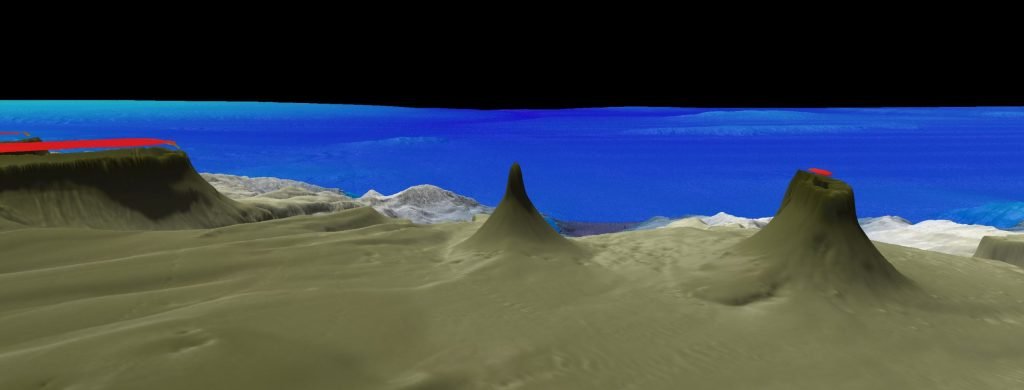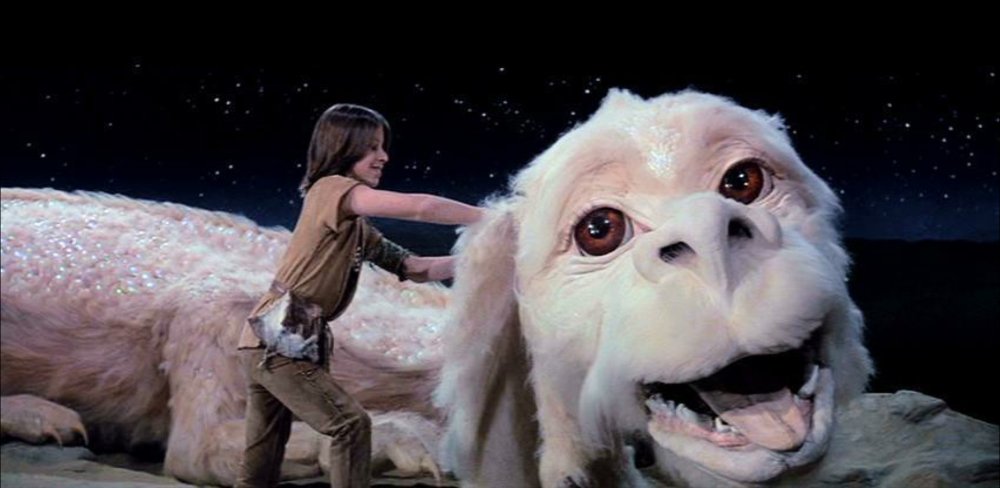How much do we know about our world?
We know the sky is blue don’t we? And the grass is green? Except sometimes the sky is very grey indeed and the grass isn’t even there!
Maybe we don’t know so much about our world after all? Maybe we’re just silly little nonsensical humans who think we know everything but really we’re just swimming about the place without a map or a compass or half a clueless clue what direction to take to get to the next coral reef? Maybe.
A Skyscraper in the Middle of the Ocean!
Speaking of the next coral reef: Turns out just the other day scientists in Australia happened to stumble across a previously undiscovered detached coral reef that’s over 500 metres high and taller than the flipping Empire State building!

This newly found reef sits roughly 130km off Cape York at the northern end of the Great Barrier Reef in Australia, and was found during a 3D seabed mapping exercise conducted by scientists Dr. Robin Beaman of James Cook University and his Co-PI Mardi McNeil, along with their team of other groovy ocean science folk. This fantastical discovery work is all being done aboard a ship provided by The Schmidt Ocean Institute called the R/V Falkor.
If you’re wondering what a Falkor is, no no no! A Falkor is not a fal-con. Falkor is the majestically majestical creature from The NeverEnding Story, a movie from the 80s directed by Wolfgang Peterson that I used to absolutely love when I was a little nipper but haven’t seen in a long time because I completely forgot about it but will now probably watch this evening after this coral reef appearing out of nowhere story has reminded me of it. Unearthing (or unoceaning?) new skyscraper dwarfing coral reefs while simultaneously reminding me about The NeverEnding Story, thank you very kindly Australian ocean science folk!


Okay Falkor, bring us back to the reef now please!
Just the other day scientists in Australia happened to stumble across a previously undiscovered detached coral reef that’s over 500 metres high and taller than the flipping Empire State building!
This new coral reef those ocean science folks just found is about 1.5km wide at the base and about half a km tall, and apparently it is the first ‘large detached reef’ to be found in the area SINCE THE 19TH CENTURY! (Have to say I never knew coral reefs were so good at hide and seek, you’d think this reef would have gotten bored after a while and come to the kitchen for its dinner, but no, it stuck it out somehow, hiding in the shadows for all those years without so much as a squeak. I guess it’s all about mental fortitude. Maybe coral reefs are just more mentally strong than humans are? I suppose, that wouldn’t take much now would it? Puny puny humans.
New Forms of Life
From what they have found so far, the reef is home to plenty of reef fish, and is thought to have ‘an incredible abundance of sponges, sea fans, and soft corals,’ which suggests that the area is ‘rich in nutrients carried by strong currents and upwellings of deep waters.’ (Hmmm, rich in nutrients. So maybe that’s why the reef never came to the kitchen for its dinner?) (Crafty crafty reef!) (Well done reef, very well played) (The dinner was full of processed chemicals anyways.)
Turns out the groovy ocean science folks onboard the R/V Falkor are currently on a year-long exploration of oceans surrounding Australia and have already discovered what they believe is the longest sea creature ever recorded, a 45-metre long siphonophore, as well as dozens of ‘yet-to-be described’ species such as black coral, sponges, and scorpionfish.
As you would imagine, the discovery of this reef will probably lead to years of study, and who knows, at this rate, they may even end up finding a thriving ocean dinosaur colony down there somewhere, as well as the main dragon from Game of Thrones, the lost city of Atlantis, my Monday morning motivation, and possibly a few alien spaceships for good measure to go along with what they’ve already discovered.
Turns out the groovy ocean science folks onboard the R/V Falkor are currently on a year-long exploration of oceans surrounding Australia and have already discovered what they believe is the longest sea creature ever recorded, a 45-metre long siphonophore, as well as dozens of ‘yet-to-be described’ species such as black coral, sponges, and scorpionfish. So maybe finding the thriving colony of ocean dinosaurs isn’t so unrealistic after all? Certainly far more likely than finding my Monday morning motivation I would imagine. Or Tuesday morning for that matter. Or Wednesday. You get the out of focus picture; mornings themselves are the main culprit here! Leave the damn days alone! (This whole ‘coffee helps you focus’ talk is nothing but nonsense-flavoured malarky.)
Plenty Left to Discover
Our understanding of things is not always correct and seemingly dark and empty spaces are sometimes teeming with colour and life.
Anyways, it’s nearly the afternoon now so it’s time to focus on what’s important here. It’s incredible discoveries like this one that really serve as a reminder that there is so much we do not know, about ourselves and about the world around us. Nothing is guaranteed in this world. The sky isn’t always blue and the grass isn’t always green. Our understanding of things is not always correct and seemingly dark and empty spaces are sometimes teeming with colour and life. New forms of life that we’ve never even witnessed before.
Tom bridge, a principal investigator on the expedition that discovered this reef said ‘We know more about the surface of our moon than we do about what lies in the depths beyond our coastlines.’
I would imagine that statement also rings true in a figurative sense; the internal exploration of human potential has yet to even leave the harbour!
How much do we know about our world? Probably nothing much at all, yet.
But as this expedition has demonstrated, yet, can be a very important word indeed.
About the Author

Adam Millett is a freelance writer for hire who specialises in sustainability and environmental issues. He believes the economy should be circular, businesses should make the world a better place, and that effective content is the best way to spread the word about sustainability. Visit his website at wordchameleon.com if you want to bring your vision of sustainability to life.
















